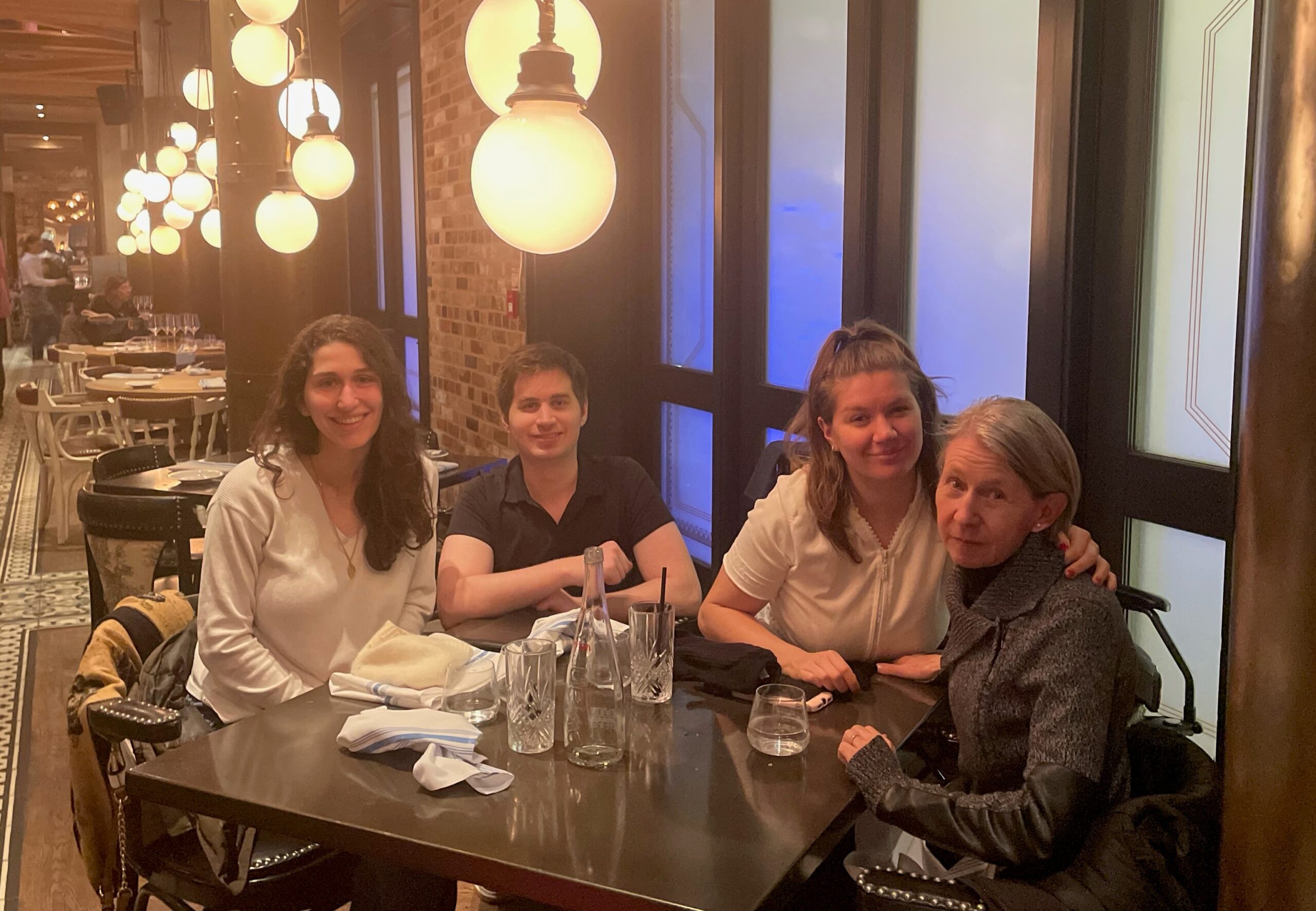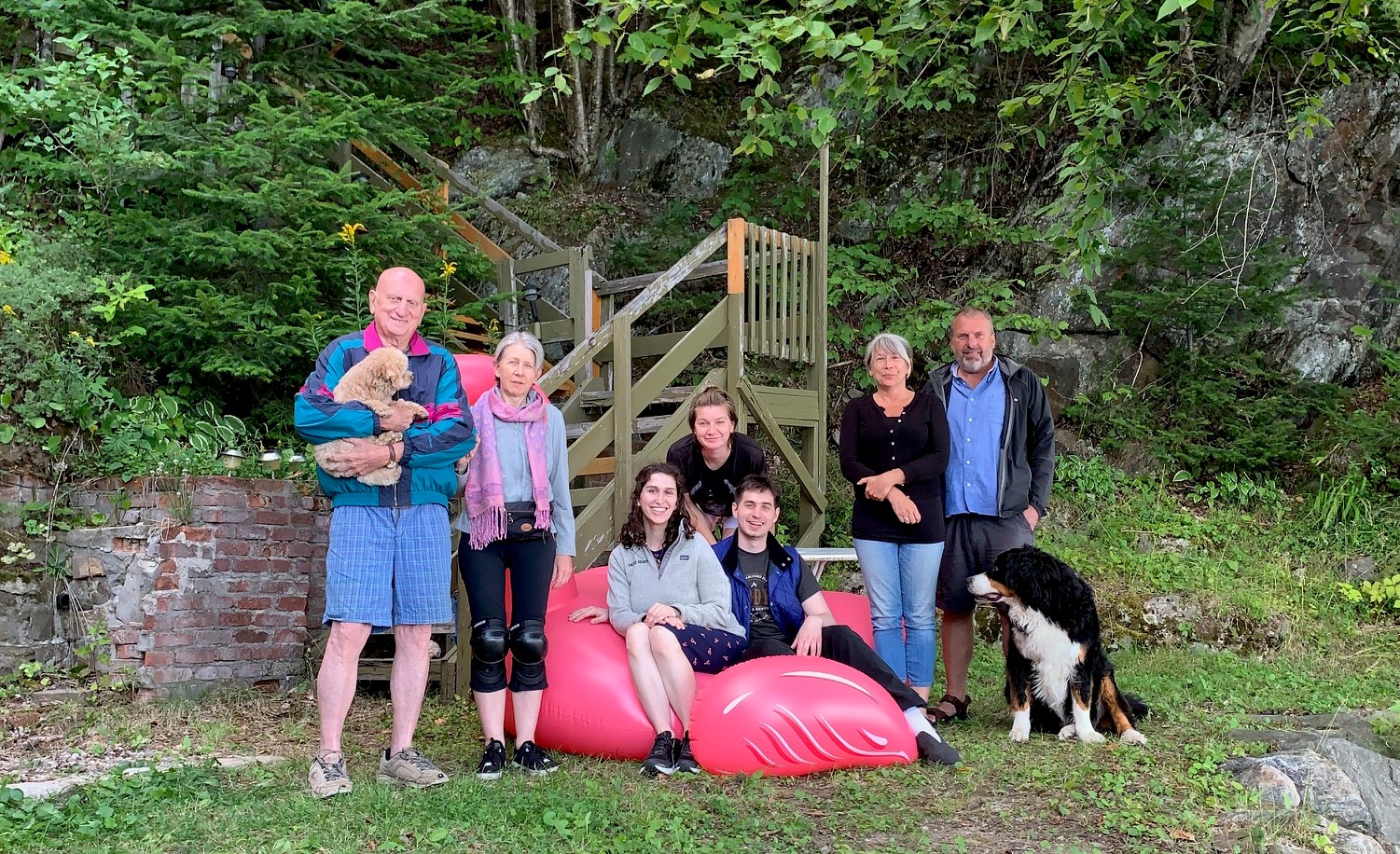By Andre Cote-Barch, MSA Coalition Care Partner Representative
 I will never forget the emotional call I received from my father while I was at work. My mother was diagnosed with a degenerative neurological disorder and had an undetermined life expectancy. I was only 23 years old and had to begin grappling with the idea of life without my mother. I had just moved across the country to pursue a career in finance and was now faced with a whole new set of factors and priorities.
I will never forget the emotional call I received from my father while I was at work. My mother was diagnosed with a degenerative neurological disorder and had an undetermined life expectancy. I was only 23 years old and had to begin grappling with the idea of life without my mother. I had just moved across the country to pursue a career in finance and was now faced with a whole new set of factors and priorities.
After several years of confusing symptoms that did not seem to have an identified cause, she was referred to a stroke clinic where she was initially diagnosed with Parkinson’s Disease. However, after an MRI showed findings suggestive of MSA-P, she started to investigate further. After visiting eight different doctors, the diagnosis of MSA-P was finally made. There was some comfort in having an explanation for my mother’s symptoms. Even so, this health outcome did not make sense in my mind. Hadn’t my mother ‘done all the right things’ when it came to her health and mental agility? She had always prioritized wellness, exercised regularly, and even re-explored her childhood passions of ice hockey and ballet while in her 40s and 50s. In her professional life, she diligently navigated medical school and served as a forensic psychiatrist for members of our community and our armed forces. In her personal life, she made time to raise my sister Margot and me.
 As a caregiver and son, I have witnessed how the disease has impacted our family. At first, my mother carried on with her normal routines and maintained her busy work schedule. She fought the illness by changing her diet to organic foods and exercising with more frequency and intensity. She initially traveled with ease to destinations including France, Las Vegas, and Prince Edward Island with our family. She also found a support network and continued to learn about her illness by traveling to The MSA Coalition conferences in Orlando and San Francisco. Over the years, the illness has continued to impact her independence and livelihood. She had to resign from her role at the hospital and her home has been adapted to support her mobility. She requires assistance with daily tasks including walking, cooking, eating, and basic hygienic tasks.
As a caregiver and son, I have witnessed how the disease has impacted our family. At first, my mother carried on with her normal routines and maintained her busy work schedule. She fought the illness by changing her diet to organic foods and exercising with more frequency and intensity. She initially traveled with ease to destinations including France, Las Vegas, and Prince Edward Island with our family. She also found a support network and continued to learn about her illness by traveling to The MSA Coalition conferences in Orlando and San Francisco. Over the years, the illness has continued to impact her independence and livelihood. She had to resign from her role at the hospital and her home has been adapted to support her mobility. She requires assistance with daily tasks including walking, cooking, eating, and basic hygienic tasks.
Despite these adversities, my mother continues to be a fighter and maintains her adventurous spirit. This determination led her to succeed in our mother-son dance at my wedding in New York this past July. I admire my mother’s strength and determination over the past 7 years to slow the progression of this disease. While my role as a caregiver has continued to expand, it has also allowed me to spend more time with my mother as well as my father and sister who also provide caregiving. I am grateful that our family closeness, faith in God, and support for one another have continued to grow throughout this experience. I am thankful that the MSA Coalition continues to provide my family with a community of support, research initiatives, and a platform to spread awareness about the illness. As the care partner representative of the Board of Directors of the MSA Coalition, I look forward to continuing to learn about MSA and finding creative ways to support MSA patients and their caregivers.

